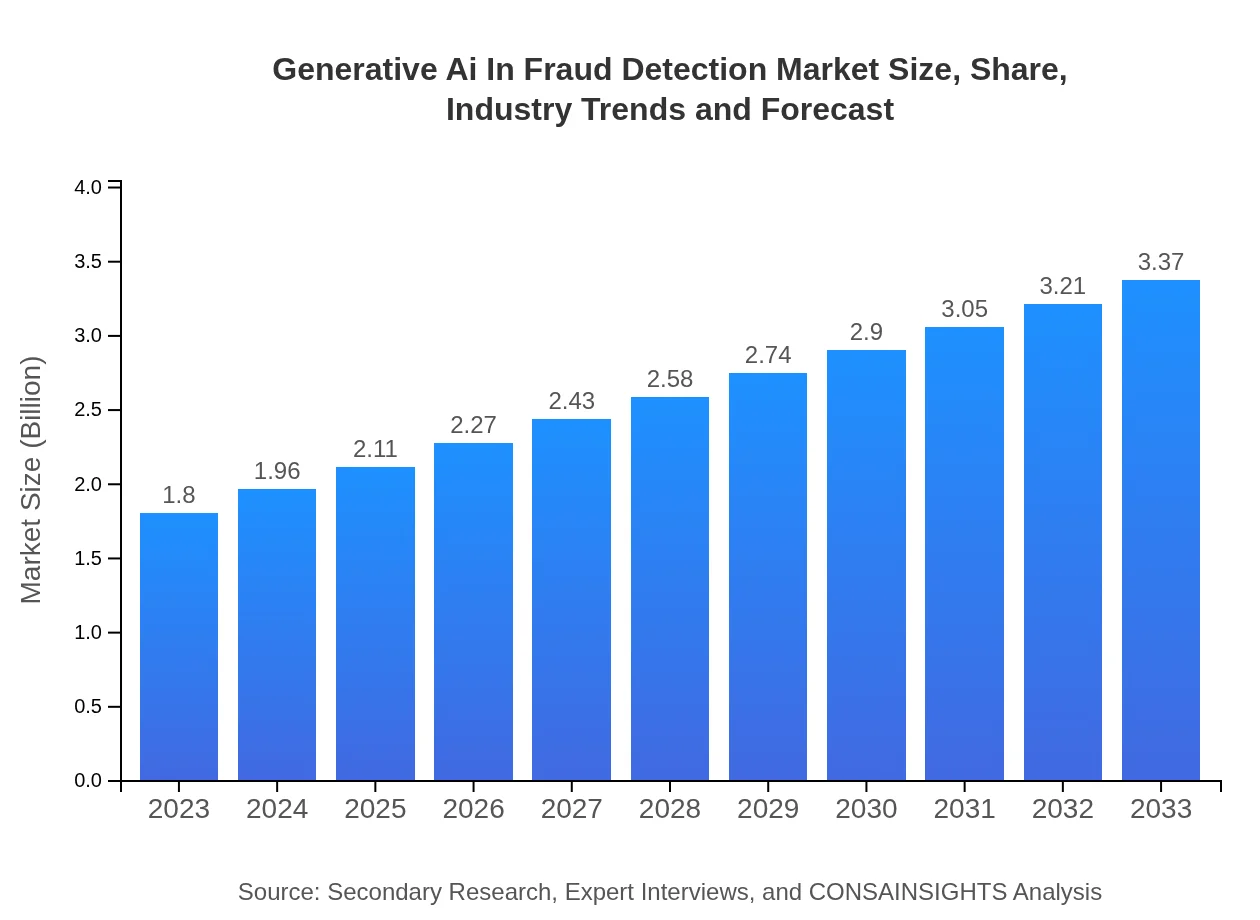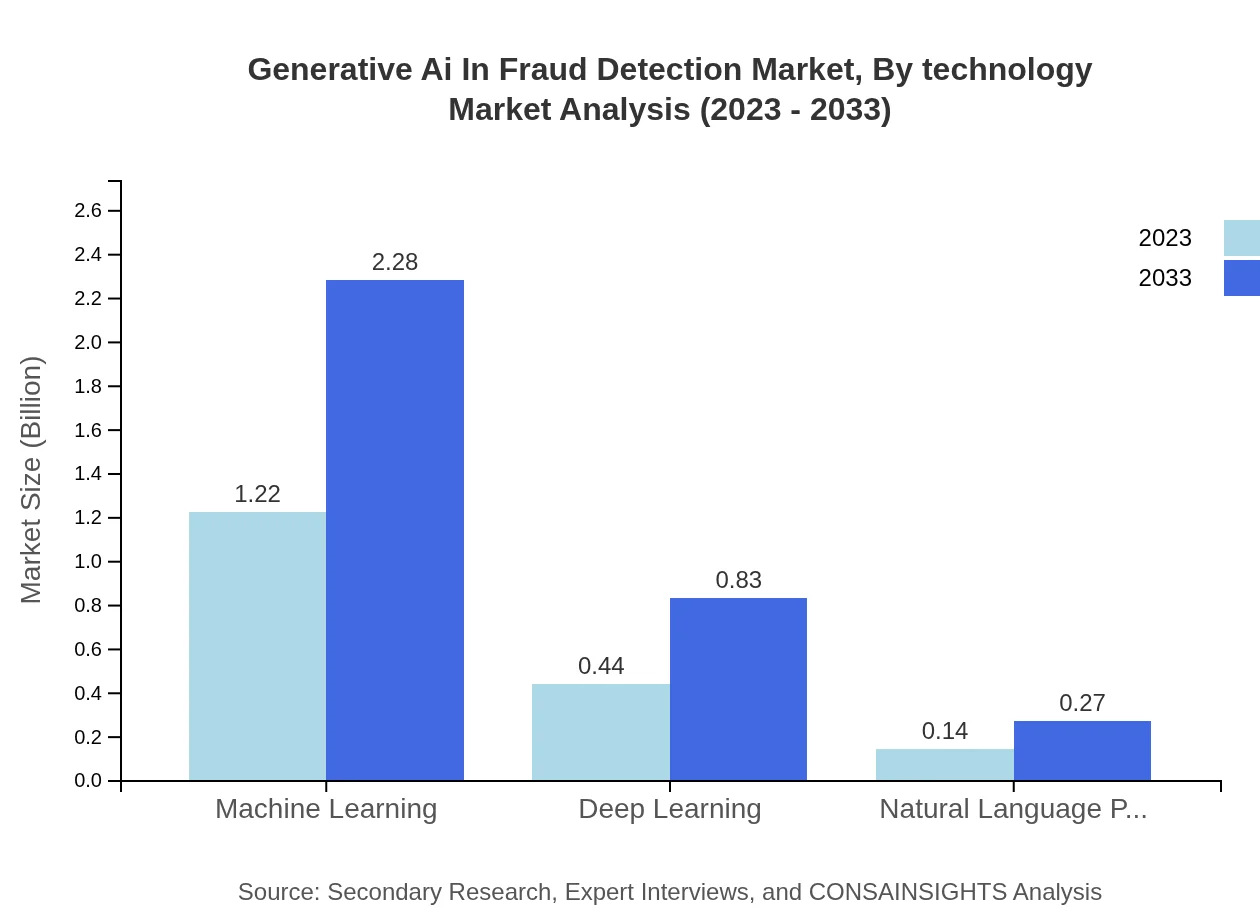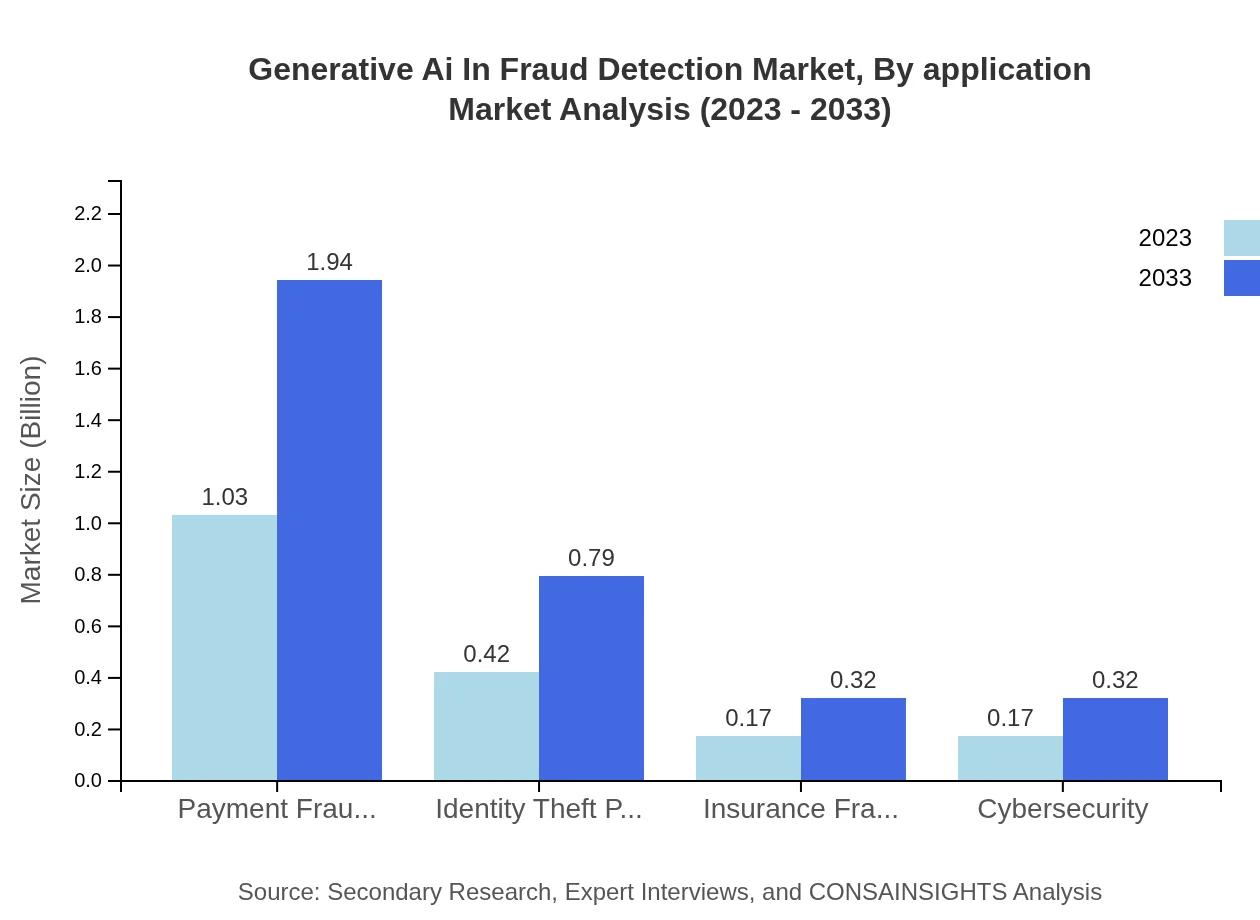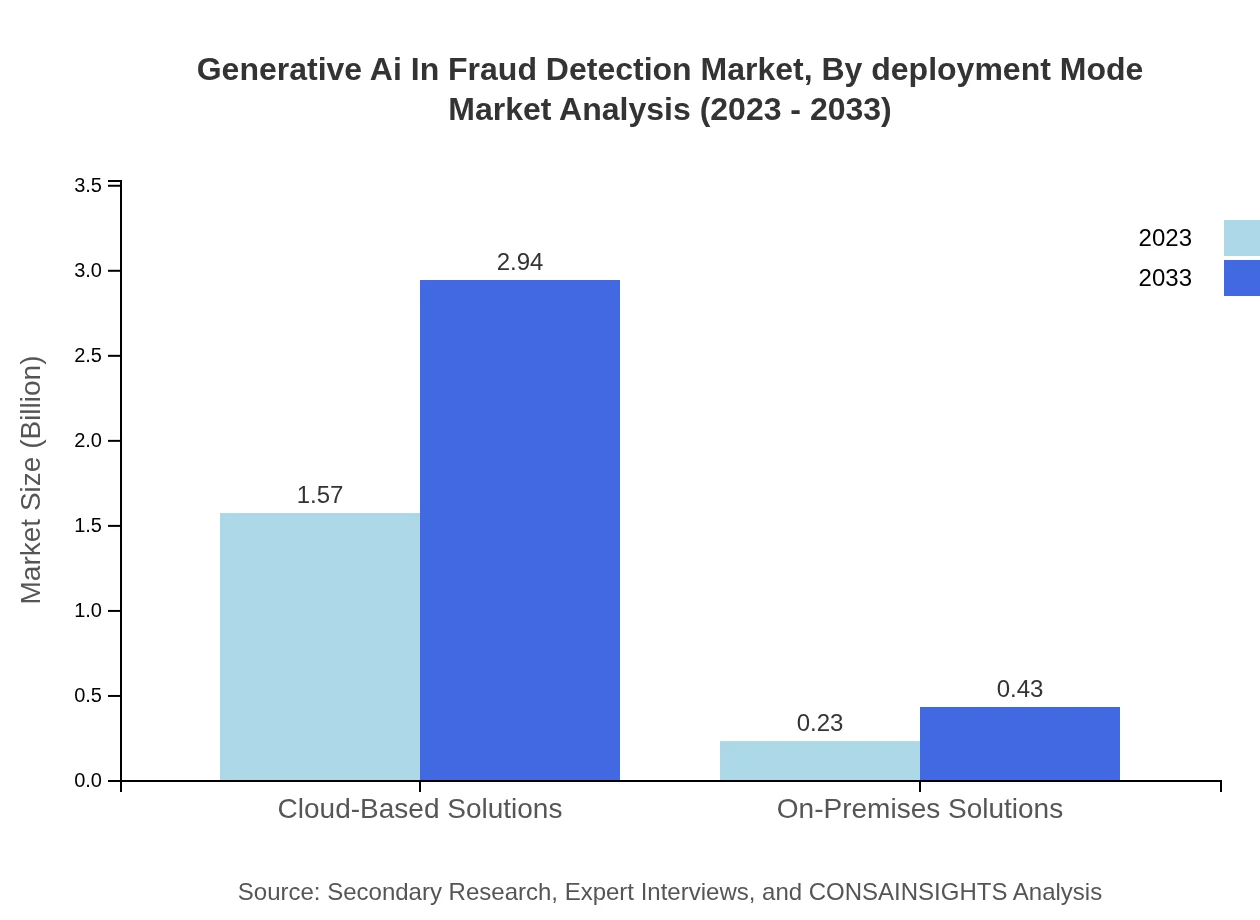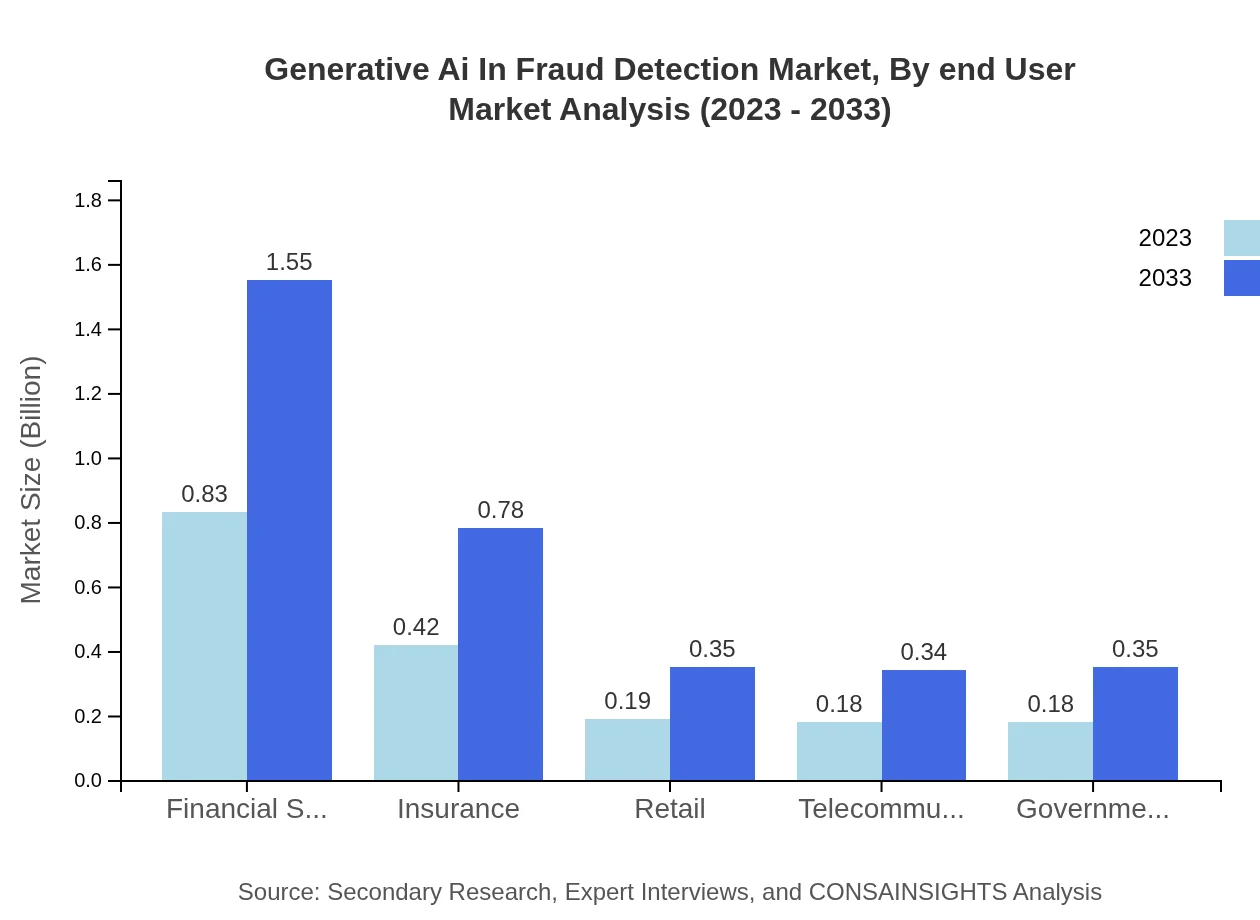Generative Ai In Fraud Detection
Published Date: 31 January 2026 | Report Code: generative-ai-in-fraud-detection
Generative Ai In Fraud Detection Market Size, Share, Industry Trends and Forecast to 2033
This report delves into the Generative AI in Fraud Detection market, offering insights on market dynamics, segmentation, regional analyses, and expected growth trends from 2023 to 2033.
| Metric | Value |
|---|---|
| Study Period | 2023 - 2033 |
| 2023 Market Size | $1.80 Billion |
| CAGR (2023-2033) | 6.3% |
| 2033 Market Size | $3.37 Billion |
| Top Companies | IBM, SAS, Palantir Technologies, SAP |
| Last Modified Date | 31 January 2026 |
Generative Ai In Fraud Detection Market Overview
Customize Generative Ai In Fraud Detection market research report
- ✔ Get in-depth analysis of Generative Ai In Fraud Detection market size, growth, and forecasts.
- ✔ Understand Generative Ai In Fraud Detection's regional dynamics and industry-specific trends.
- ✔ Identify potential applications, end-user demand, and growth segments in Generative Ai In Fraud Detection
What is the Market Size & CAGR of Generative Ai In Fraud Detection market in 2023?
Generative Ai In Fraud Detection Industry Analysis
Generative Ai In Fraud Detection Market Segmentation and Scope
Tell us your focus area and get a customized research report.
Generative Ai In Fraud Detection Market Analysis Report by Region
Europe Generative Ai In Fraud Detection:
In Europe, the market size is anticipated to grow from $0.67 billion in 2023 to $1.26 billion by 2033. This growth reflects an increasing focus on cybersecurity, stringent regulatory compliances, and significant investments in AI technologies.Asia Pacific Generative Ai In Fraud Detection:
In the Asia Pacific region, the Generative AI in Fraud Detection market was valued at $0.30 billion in 2023 and is projected to reach $0.56 billion by 2033. The growing number of digital transactions and increasing incidences of cyber fraud drive demand, alongside rising investments from financial institutions in AI technologies.North America Generative Ai In Fraud Detection:
North America dominate the market, valued at $0.58 billion in 2023, with projections of reaching $1.08 billion by 2033. The strong regulatory framework and high adoption rates of innovative technologies in the financial sector contribute significantly to this growth.South America Generative Ai In Fraud Detection:
The South American market is expected to grow from $0.17 billion in 2023 to $0.33 billion by 2033. Rising economic digitalization and a growing middle-class population contribute to increased cyber activity, necessitating advanced fraud detection mechanisms.Middle East & Africa Generative Ai In Fraud Detection:
The market in the Middle East and Africa is smaller, starting at $0.08 billion in 2023, expected to rise to $0.14 billion by 2033. However, increasing investment in digitalization and technology solutions for fraud prevention signifies a potential growth avenue.Tell us your focus area and get a customized research report.
Generative Ai In Fraud Detection Market Analysis By Technology
Machine Learning remains the leading technology in the Generative AI in Fraud Detection market, accounting for $1.22 billion in 2023 and projected to grow to $2.28 billion by 2033, representing 67.59% market share. Deep Learning follows, with a size of $0.44 billion and expected growth to $0.83 billion by 2033, holding a 24.5% share. Natural Language Processing shows modest growth from $0.14 billion to $0.27 billion, making up 7.91% market share.
Generative Ai In Fraud Detection Market Analysis By Application
Payment Fraud Detection leads the applications sector with a size of $1.03 billion in 2023, predicted to rise to $1.94 billion by 2033, constituting 57.47% of the market. Identity Theft Prevention and Insurance Fraud Prevention also feature prominently, with sizes of $0.42 billion and $0.17 billion, respectively, both projected to grow steadily through 2033.
Generative Ai In Fraud Detection Market Analysis By Deployment Mode
Cloud-Based Solutions dominate the deployment mode segment, accounting for $1.57 billion in 2023 with a market share of 87.21%, anticipated to reach $2.94 billion by 2033. In contrast, On-Premises Solutions hold a smaller share of 12.79%, growing from $0.23 billion to $0.43 billion.
Generative Ai In Fraud Detection Market Analysis By End User
The Financial Services sector is the largest end-user, generating $0.83 billion in 2023, expected to grow to $1.55 billion by 2033, holding a continuous share of 45.98%. Other sectors such as Insurance and Government Agencies also display significant growth, reflecting increasing awareness of fraud prevention needs across various industries.
Generative Ai In Fraud Detection Market Trends and Future Forecast
Tell us your focus area and get a customized research report.
Global Market Leaders and Top Companies in Generative Ai In Fraud Detection Industry
IBM:
IBM offers advanced AI solutions that enhance fraud detection across various sectors, utilizing machine learning algorithms to analyze data patterns effectively.SAS:
SAS provides robust analytics and AI-driven technologies designed to detect and combat fraud, focusing on the financial services industry.Palantir Technologies:
Palantir specializes in big data analytics and offers AI tools that enable organizations to visualize data and recognize fraudulent activities more efficiently.SAP:
SAP combines AI with enterprise software to improve risk management and fraud detection capabilities for businesses globally.We're grateful to work with incredible clients.









FAQs
What is the market size of generative Ai In Fraud Detection?
The generative AI in fraud detection market is currently valued at $1.8 billion, with a projected CAGR of 6.3% from 2023 to 2033, indicating steady growth as businesses increasingly adopt AI solutions for enhanced security.
What are the key market players or companies in this generative Ai In Fraud Detection industry?
Key players in the generative AI in fraud detection industry include major tech firms specializing in AI, cybersecurity solutions, and data analytics. These companies lead innovations, providing essential tools tailored for fraud prevention across multiple sectors.
What are the primary factors driving the growth in the generative Ai In Fraud Detection industry?
Growth in the generative AI in fraud detection industry is driven by rising fraud rates, increased investment in AI technologies, regulatory pressures for better security measures, and advancements in machine learning algorithms, all necessitating robust detection solutions.
Which region is the fastest Growing in the generative Ai In Fraud Detection?
In the generative AI in fraud detection market, Europe is recognized as the fastest-growing region, projected to expand from $0.67 billion in 2023 to $1.26 billion by 2033, reflecting increased demand for AI-driven fraud management systems.
Does ConsaInsights provide customized market report data for the generative Ai In Fraud Detection industry?
Yes, ConsaInsights offers customized market report data tailored to specific needs within the generative AI in fraud detection industry, allowing businesses to access targeted insights that align with their strategic objectives.
What deliverables can I expect from this generative Ai In Fraud Detection market research project?
Deliverables from the generative AI in fraud detection market research project typically include comprehensive reports outlining market trends, growth projections, competitive analysis, segment data, and strategic recommendations for stakeholders.
What are the market trends of generative Ai In Fraud Detection?
Key trends in the generative AI in fraud detection market include the integration of AI with traditional security systems, increased focus on real-time detection capabilities, the rising importance of customer-centric fraud prevention solutions, and growing partnerships between tech firms and financial institutions.

